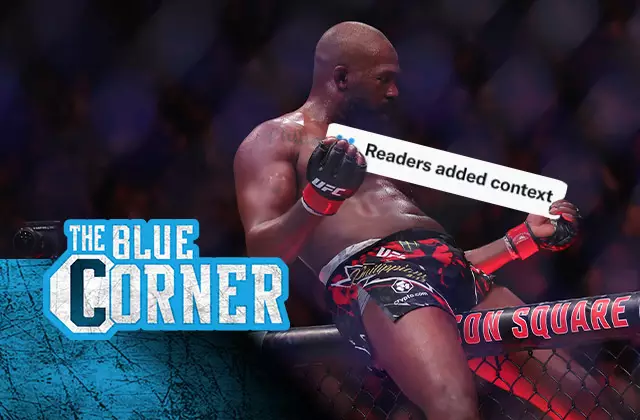Jon Jones, a name that evokes heated discussions in the Mixed Martial Arts (MMA) world, recently made headlines with his emphatic victory over Stipe Miocic at UFC 309. This fight not only solidified his position in the heavyweight division but also reignited debates surrounding his legacy and pound-for-pound rankings. As he re-entered the octagon at Madison Square Garden, critics and supporters alike scrutinized Jones’ age and performance, leading to a complex dialogue on what constitutes an athlete’s longevity and greatness.
At 37 years old, Jones stepped into the octagon on November 16 for his second heavyweight title fight, showcasing that age does not inhibit a fighter’s prowess. The bout against Miocic, who was 42 at the time, was framed by discussions about age and relevance in a sport that often favors younger competitors. Most analysts anticipated that the aged Miocic would struggle against Jones, and the fight unfolded as expected with Jones winning by TKO in the third round. This outcome not only underscored his technical proficiency but also reinforced the narrative that experience can outweigh youthful vigor in elite athletes.
Although victory was sweet, Jones’ post-fight remarks shifted the conversation from mere outcomes to the broader implications of aging in sports. In his statement on X (formerly Twitter), Jones claimed, “Today, I’m proud to stand as the oldest champion on the roster.” However, he inadvertently set off a wave of reactions due to this assertion being factually incorrect. The fallout from this comment highlighted an underlying vulnerability in Jones’ narrative, raising questions about the mental fortitude of a fighter who has achieved so much yet sometimes falters in precision.
Facts, Figures, and Fallacies
One of the most significant aspects of Jones’ legacy is the doubt that it contains—both from within and from outside. Jones became the youngest champion in UFC history at only 23 years old, a record achievement that speaks volumes about his early potential. Yet, his recent claim of becoming the oldest champion was immediately challenged as factual inaccuracies came to light.
Age in sports, particularly in MMA, is often a double-edged sword. While maturity brings wisdom, strategy, and experience, it can also introduce physical limitations. Interestingly, Jones, despite being younger than the reigning UFC light heavyweight champion Alex Pereira, has heroically positioned himself in a league of his own. At the crux of Jones’ messaging is a strong narrative: that mindset and preparation can defy age-related limitations. This notion resonates with his fans, who are often willing to overlook the occasional misstatement if it serves to bolster their champion’s legacy.
Jones’s journey, marked by peaks of success and valleys of controversy, is indicative of the broader question surrounding athletic competition: How should we measure greatness? In a sport where physicality often reigns supreme, can the psychological aspect be equally valued? A 37-year-old champion who dominates younger opponents brings a significant narrative to the forefront. As Jones ages, he is not just competing against other fighters but also against ageism and perceptions that often diminish the contributions of older athletes.
Moreover, in a sport like MMA where the average career span is considerably shorter than in other sports, the apparent longevity of a fighter like Jones is noteworthy. His assertion that “age is just a number” encapsulates an essential truth in professional sports: physical skill can be complemented by mental acuity and tactical intelligence. The dynamic blend of these attributes is what keeps a fighter relevant, regardless of the passing years.
As Jon Jones continues to navigate the complexities of competition, legacy, and public perception, his path forward will undoubtedly generate debate and intrigue. Every fight adds layers to his already complex narrative. While misstatements about age may draw scrutiny, they also underscore a broader conversation about the measurements of success and the definition of greatness in the athletic realm. Whether he faces younger champions like Tom Aspinall or continues to wield his influence over MMA, Jones remains a figure to watch in the coming years—both for his accomplishments inside the arena and for the ongoing discourse surrounding age and athleticism. The narrative of Jon Jones, like age in sports, is multifaceted and compelling.

